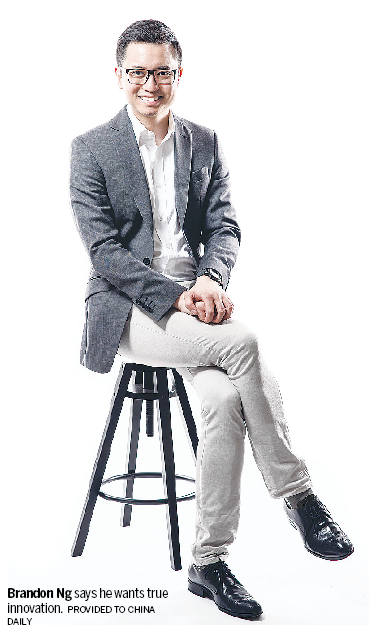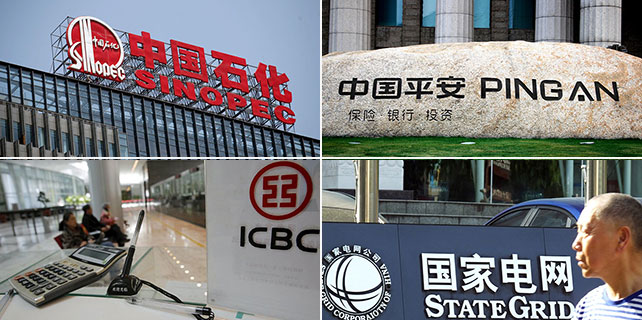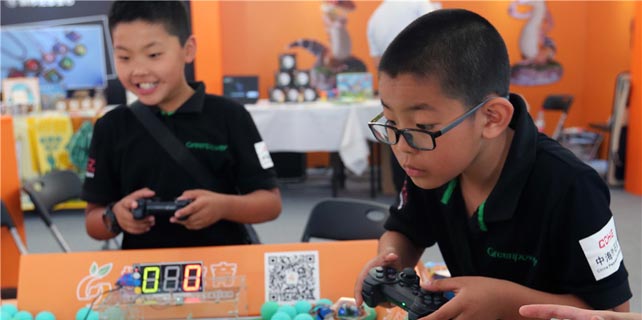Entrepreneur on a mission to transform energy supply

Bruneian Brandon Ng is just 29 years old but he has already cofounded an innovative startup that aims to solve one of the world's biggest problems — intermittent power supply.
"The word innovation is overused," said Ng, who is now based in Hong Kong. He believes it is most deserved when referring to solutions that are a little ahead of their time.
"If you have a problem and someone proposes a solution that doesn't make sense today but could make sense in two, three, five or 10 years, then there's a much higher likelihood that is innovative, because that's probably genuinely new," he said.
In 2014, Ng, together with engineer Luca Valente, cofounded Ampd Energy. The startup developed Ampd Silo - an energy storage system which uses advanced, rechargeable lithium-ion batteries to generate reliable backup power supply.
Ampd Energy was first runner-up for the prestigious Engadget Best Startup Award at this year's Consumer Electronics Show in Las Vegas, and Ampd Silo is already generating interest among buyers in Southeast Asia, the Middle East and Africa. Ng himself was included in Forbes' 30 Under 30 Asia 2017: Industry, Manufacturing & Energy.
Despite such early success, Ng did not set out to be an entrepreneur or to solve the problem of power supply disruption. Ampd Energy, in fact, was established because of an electric motorcycle.
In 2012, Ng was using an electric scooter to navigate the busy streets of Beijing. Working at that time as an investment banker, Ng was on a one-year career break, learning Mandarin at Tsinghua University.
He was planning to return to his life in banking in London after mastering Mandarin. But his curiosity over the steep price of fully fledged electric motorcycles pushed him in another direction.
He could not understand why electric motorcycles were retailing for $13,000 each, while a gas-powered one sold for just $8,000. So Ng, who has an engineering degree from Imperial College London, partnered with Valente and another engineer. They pooled their savings and produced a prototype of a cheaper electric motorcycle.
"We wanted to make electric motorcycles that were both price and performance competitive with gas motorcycles," Ng told China Daily.
"The issue with electric motorcycles at that time was always price. How do we get the price down? The biggest issue is (the) batteries - the most expensive component in the finished vehicle.
"We spent a lot of time on (developing) these batteries: How do we make the batteries cheaper without compromising safety, reliability, power and packaging?"
Ng said standardization of components helped in lowering cost without sacrificing quality. He added that being in China, with its immense manufacturing capacity across various industries and market verticals, gave him access to suppliers that produce high-quality materials at lower prices.
The partners' success in developing more affordable electric motorcycles encouraged them to market their products to the Indonesian police force. But the blackout that interrupted a meeting with their distributor in Sumatra sparked a novel business idea.
Ng recalled: "We joked with our distributor at the time: Wouldn't it be funny to power the whole building with our motorcycles? But then we thought: Why do we need the motorcycles? Why don't we just use the batteries?"
Changing the direction of the business made a lot of sense to Ng.
"From a business value standpoint and from an engineering standpoint - because that is what engineers do, solve the big problems - (unreliable power supply) is a huge problem that affects 3 billion people and many enterprises globally. So we decided to shift our vision-mission to solve (the problem of) unreliable power supply," he said.
Ng and his partners went back to the drawing board and raised $3.8 million in seed funding, mostly from angel investors.
In 2014 they relocated to Hong Kong to join the Hong Kong Science and Technology Park's Incu-Tech incubator program - for handpicked, high-potential individuals - and to work closely with their contract manufacturers in the Pearl River Delta.
He said that being in Hong Kong, with its open economy, gave his startup the credibility and network support it needed to grow.
Over the next two years, Ng and his team worked to develop a battery-powered energy storage system that can be used when there is a power outage. The result of this research and development was Ampd Silo.
Ng said he aims to sell Ampd Silo to hospitals, telcos, banks, government agencies and shopping centers - sectors in which power disruption can lead to significant costs.
















